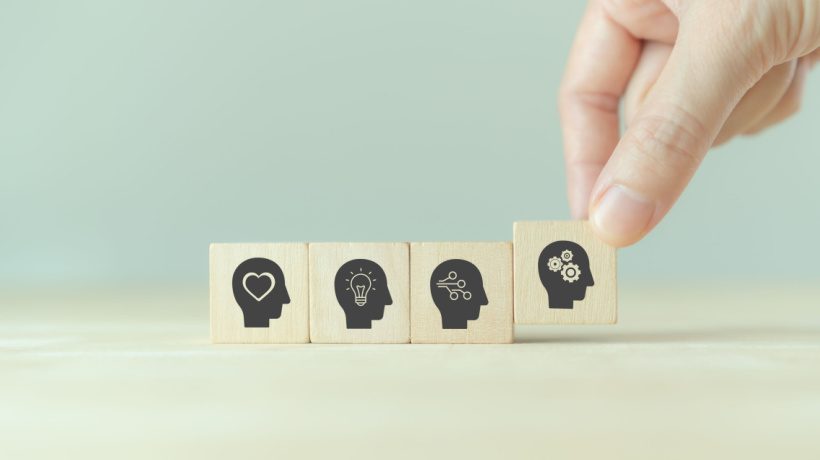Dynamic Adaptive Learning In The Digital Age
In the digital age, adaptive learning rapidly replaces traditional one-size-fits-all educational approaches. This powerful methodology tailors instruction to the unique needs of each learner. Adaptive learning leverages advanced technology and data analytics to deliver personalized education, revolutionizing learning. This article explores adaptive learning, its benefits, and its impact on education in the digital era.
Understanding Adaptive Learning For Personalized Education
Adaptive learning is an innovative approach that adjusts instructional content, pace, and assessment based on the individual learner’s progress, performance, and learning preferences. It utilizes sophisticated algorithms and Artificial Intelligence to analyze learner data and provide customized learning experiences. Adaptive learning ensures that instruction is relevant, engaging, and optimally challenging by adapting to each learner’s needs.
Adaptive learning’s ability to deliver highly personalized instruction enhances learner engagement by presenting content that resonates with individual preferences, maximizing motivation and enjoyment of the learning process. Learners receive tailored instruction that aligns with their strengths and weaknesses, making the learning experience more meaningful and impactful.
5 Ways Adaptive Learning Enhances Personalized Education
Individualized Pace And Progression
Adaptive learning recognizes that learners progress at different speeds and accommodates their unique learning rhythms. Rather than adhering to a rigid curriculum timeline, adaptive learning systems adjust the pace of instruction based on each learner’s mastery of concepts. Learners who grasp concepts quickly can progress more rapidly, while those who require additional support receive the necessary reinforcement and practice to ensure a solid understanding.
The individualized pace and progression fostered by adaptive learning help prevent learner boredom or frustration often associated with a one-size-fits-all approach, by allowing learners to move forward when ready and providing support when needed. Adaptive learning promotes a positive learning experience that is tailored to the individual, improving motivation and reducing the risk of learners falling behind or becoming disengaged.
Continuous Assessment And Feedback
Adaptive learning systems provide ongoing assessment and immediate feedback to learners, enabling them to track their progress and identify areas that require further attention. Assessments are not limited to traditional quizzes or tests; they can take various forms, such as interactive simulations, real-world scenarios, or problem-solving exercises. Immediate feedback allows learners to address misconceptions and reinforce their understanding, fostering a sense of self-efficacy and promoting continuous improvement.
The continuous assessment and feedback loop of adaptive learning offers learners a deeper understanding of their strengths and areas for improvement. By receiving timely feedback, learners can reflect on their progress, make necessary adjustments, and develop metacognitive skills that enhance their learning process. The personalized feedback also helps build learner confidence and motivation, as they receive recognition for their achievements and guidance for further growth.
Data-Driven Insights For Educators
Adaptive learning generates rich data on learner performance, engagement, and behavior. Educators can harness this data to gain valuable insights into each learner’s strengths, weaknesses, and learning patterns. This data-driven approach enables educators to make informed decisions, adjust instructional strategies, and provide targeted interventions when necessary. By leveraging data analytics, educators can ensure that learners receive the support and guidance they need to succeed.
The data-driven insights provided by adaptive learning empower educators to adopt a proactive approach to instruction. Educators can identify patterns and trends by analyzing learner data, enabling them to customize instruction and interventions based on individual learner needs. This personalized approach helps educators optimize their teaching strategies, allocate resources effectively, and ensure no learner is left behind. The valuable data insights also contribute to evidence-based decision-making, driving continuous improvement in educational practices.
Flexibility For Diverse Learners
Adaptive learning accommodates the diverse needs of learners, including those with different learning styles, abilities, and backgrounds. Learners with varying levels of prior knowledge can access content and activities that suit their starting points, promoting a sense of inclusivity and enabling every learner to progress at their own pace. Adaptive learning platforms also offer multiple modalities, allowing learners to engage with content through text, video, audio, or interactive elements, catering to different learning preferences.
The flexibility provided by adaptive learning ensures that learners can engage with educational materials in ways that are most conducive to their learning styles. Whether learners prefer visual, auditory, or kinesthetic learning modes, adaptive learning platforms can accommodate their preferences, making the learning experience more enjoyable and effective. Additionally, the adaptive nature of the instruction allows learners to focus on areas where they need more support or challenge themselves in areas where they excel, creating a more personalized and engaging learning journey.
Support For Lifelong Learning
Adaptive learning extends beyond formal education settings and supports lifelong learning initiatives. With the rapid pace of technological advancements and evolving knowledge landscapes, adaptive learning equips learners with the necessary skills to adapt and thrive in the digital age. It fosters a growth mindset and encourages learners to embrace continuous learning throughout their lives, empowering them to remain relevant and resilient in an ever-changing world.
In an era where continuous learning is essential, adaptive learning provides individuals with the tools and resources to engage in lifelong learning. By promoting self-directed learning, adaptive learning platforms enable learners to pursue their interests, upskill, and stay abreast of the latest developments in their respective fields. The adaptive nature of the instruction ensures that learners can access appropriate content at any stage of their learning journey, fostering a culture of lifelong learning and professional growth.
Conclusion
Adaptive learning has emerged as a powerful tool in the digital age, revolutionizing education by offering personalized and learner-centric experiences. Adaptive learning enhances learner engagement, promotes mastery, and supports lifelong learning through its ability to tailor instruction, provide continuous assessment and feedback, and leverage data-driven insights. As technology continues to evolve, adaptive learning holds tremendous potential to shape the future of education, ensuring that every learner receives a genuinely personalized and impactful educational journey.

